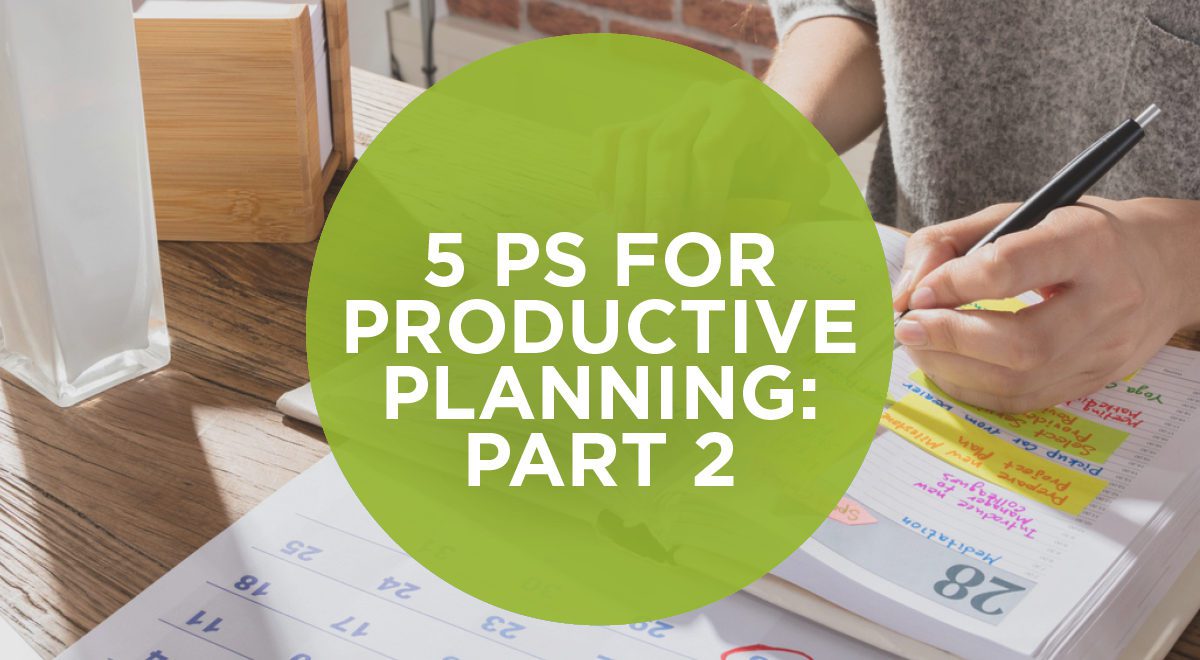Last time we looked at the first of our 5 Ps for productive planning, Pray about the Upcoming Session. If you haven’t read part 1, be sure to catch up on that first phase. Let’s jump in with phase two:
Prepare (Your Heart) for the Session
As noted before, the Holy Spirit stands ready to help us understand God’s Word and apply it to our lives. Before you begin thinking through the logistics of planning your session, begin with a personal reflection on the passage of Scripture you will be teaching. Read the Bible Story. Read it early. If you are preparing for a Sunday session, I would encourage you to consider to start this phase of preparation at the beginning of the week, maybe Monday morning during your personal devotional time. Note that this is not the time to start considering “how to teach.” Here, all we want to do is let God’s Word speak to our hearts.
Beginning reading the Bible, not with the mindset of teaching but for personal edification. Spend time preparing our own heart for what God is saying in the focus passage, allowing the Spirit of God to move in you first. This will also give you context for the other parts of preparation as you move into the leader guide.
After you’ve spent time with God and allowed Him to speak into your heart and you have context for what you’ll be teaching during the session, start working through the leader guide, familiarize yourself with the main points of your upcoming session. (Note: this is still not the time for planning specific activities or logistics. Let the key ideas resonate in your heart first.)
Many curricula begin with a summary section containing the big ideas to be covered during that session. Familiarize yourself with these big ideas to help you know where you’ll be going throughout the session. Then skim through activity choices, noting which ones stand out to you, but don’t get bogged down in the details yet. I like to put a star by any activity I want to come back to and explore further.
Some ministry trainers/advisors recommend memorizing the Bible story, transitions, and activity instructions word-for-word. While it can be helpful, word-for-word memorization is not necessary, as long as you are familiar enough with the session content that you are not constantly worrying about what you\’ll say next and how you will say it. This level of familiarity reduces stress and allows you to focus on other things happening in the room, such as a child’s understanding of the gospel and movement of the Holy Spirit. It’s hard to recognize those things when you’re not comfortable with the content, timings, and transitions. However, If you are going to work on memorizing part of the teaching session, this is the stage in which memorization should begin.
Remember: this phase is mostly about preparing your own heart and letting God teach you first. By allowing the Word of God to speak first to your heart first, you will have a much deeper understanding of the biblical truths of the session and will be able to teach from the overflow of what God has already taught you.
Come back tomorrow for the next P for productive planning.
 Jeremy Carroll is the team leader for Lifeway Kids Discipleship Resources. Before coming to Lifeway, he has been active in local church ministry for nearly 20 years in TN, TX, and AL. Jeremy earned a Master of Arts in Christian Education from Southwestern Baptist Theological Seminary. A Middle Tennessee native, he and his family live in Murfreesboro, TN.
Jeremy Carroll is the team leader for Lifeway Kids Discipleship Resources. Before coming to Lifeway, he has been active in local church ministry for nearly 20 years in TN, TX, and AL. Jeremy earned a Master of Arts in Christian Education from Southwestern Baptist Theological Seminary. A Middle Tennessee native, he and his family live in Murfreesboro, TN.


 5 Ps for Productive Planning: Part 1
5 Ps for Productive Planning: Part 1 »
»